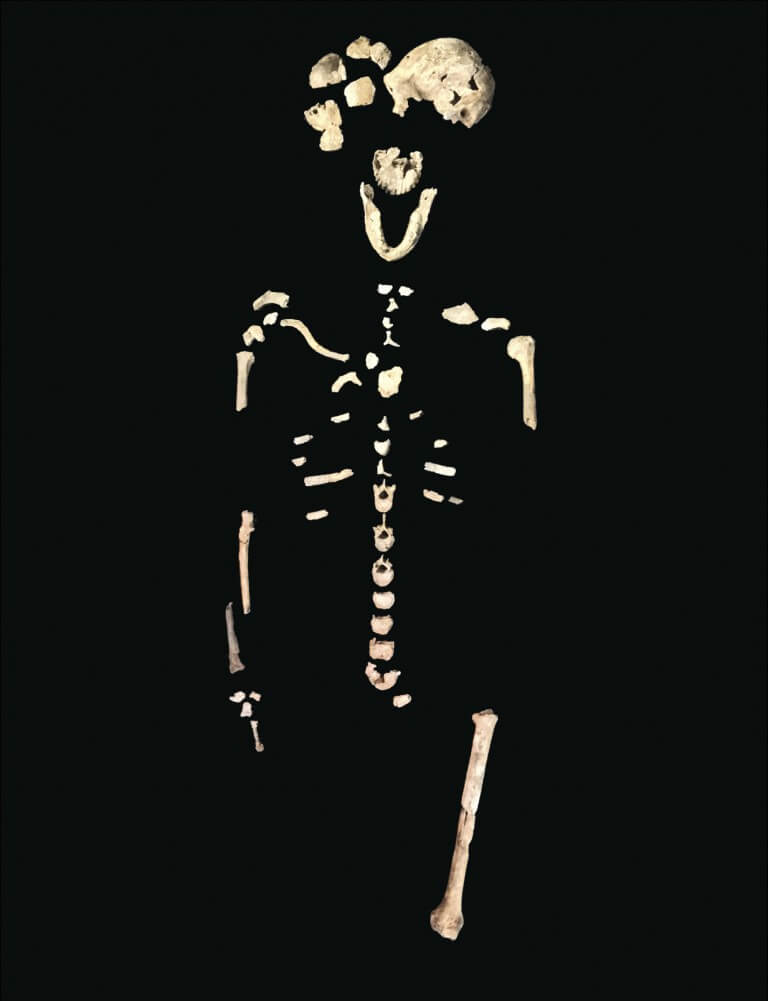Discovered in a South African cave, H. naledi first came to light in 2015, in a paper by University of the Witwatersrand anthropologist Lee Berger. Though the remains were undated at the time, estimates put them at anywhere from 100,000 to several million years old. This was based on a physical analysis of the bones, which contained a curious mixture of modern and archaic traits. Now, after putting the remains through a rigorous series of tests, Berger and his coauthors have shown that these individuals lived between 236,000 and 335,000 years ago, co-existing, at least for a time, with modern humans.

While the dating is robust, the presence of such a primitive-looking hominin species so late in our history is perplexing. In addition to an upper body more suited for tree-dwelling, H. naledi had tiny brains, smaller even than a chimpanzee, which would have left them at a disadvantage when competing with the more intelligent hominin species in the same area around that time. It’s not even known if they could use tools, although it’s certainly a possibility.
The GLP aggregated and excerpted this blog/article to reflect the diversity of news, opinion, and analysis. Read full, original post: New Chamber Reveals Most Complete Homo Naledi To Date































